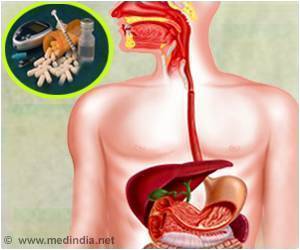Highlights:
- Scientists have developed the world's first gene therapy for glycogen storage disease (GSD)
- GSD type 1a is a rare, genetic disorder leading to the buildup of complex sugar (glycogen) in the body’s cells
- This buildup of sugar in the vital organs and tissues impairs the functionality and leads to several complications and even organ failures
- This gene therapy helps GSD patient community to get off the cornstarch dependency and maintain normal glycemic controls
What is GSD Type 1a?
Glycogen storage disease (GSD) type 1a is a rare, genetic disorder leading to the buildup of complex sugar (glycogen) in the body’s cells. This buildup of sugar in the vital organs and tissues impairs the functionality and leads to several complications and even organ failures. In GSD patients, the liver cannot break down the glycogen into glucose and causes the blood glucose levels to drop dangerously low. This is because of the mutated gene for the enzyme glucose-6-phosphatase-α (G6Pase-α), which controls sugar levels and fails in GSD patients.GSD type 1a is characterized by short stature and rapid accumulation of glycogen in the liver and kidneys. GSD usually presents in infancy, early childhood or adulthood, causing hypoglycemia or low blood glucose levels Patients with GSD need to be on cornstarch every few hours just for survival.
Novel Gene Therapy Cure for a Deadly Liver Disease
Dr. David Weinstein, a pediatric endocrinologist and scientist, is the principal investigator of a gene therapy clinical trial for GSD. Dr Weinstein is also the Director of the Glycogen Storage Disease Program at Connecticut Children's and UConn Health and cares for about 700 such patients across 51 countries.The team conducted the gene therapy clinical trial with Ultragenyx, a biopharmaceutical company. The therapy was initially administered to three patients. The gene therapy delivers a copy of the normal gene to the liver through a viral vector. The new copy replaces the mutated sugar enzyme gene and works by stabilizing the body’s glucose control.
The investigational gene therapy was first administered at UConn John Dempsey Hospital in Farmington, Connecticut, on July 24, 2018.
Case Study
Jerrod Watts was one of the first patients to receive this therapy and it has worked so well that he is no longer dependent on cornstarch and has better glucose controls.Watts overall health has improved with weight loss, improved muscle strength and better energy levels. Before receiving the gene therapy, Watts was on 400 grams of cornstarch per day. He says the treatment has changed his life and he feels ready to take on any challenge. He no longer has the hassle of getting up at night to get a dose of cornstarch or experiencing severe hypoglycemia. Watts is able to wake up after normal hours of sleep with no glucose metabolism disturbances. His message to other GSD patients is to keep up the hope.
The first clinical trial was mainly meant to test out safety in humans and all the three patients just got a test dose of one-third strength. According to Dr. Weinstein, even with this low dose, the response has been remarkable. The patients were able to get through the night without the cornstarch dose.
Two other patients are now on a lower dose of daily cornstarch. The three patients will also participate in a clinical trial to test a higher gene therapy dose. Dr. Weinstein says this is an exciting phase and they are hopeful that a higher dose will bring about dramatic health improvements in these patients.
Conclusion
Dr. Weinstein and his team have been working out a gene therapy for GSD since the last 21 years and this development is a hope for the GSD patient community. The ultimate goal of such a gene therapy is to get off the cornstarch dependency and maintain normal glycemic controls.References:
- World’s First Gene Therapy for Glycogen Storage Disease Produces Remarkable Results - (https://today.uconn.edu/2019/09/worlds-first-gene-therapy-treatment-glycogen-storage-disease-produces-remarkable-results/)
- Glycogen storage disease type 1A - (https://rarediseases.info.nih.gov/diseases/7864/glycogen-storage-disease-type-1a)
Source-Medindia
















